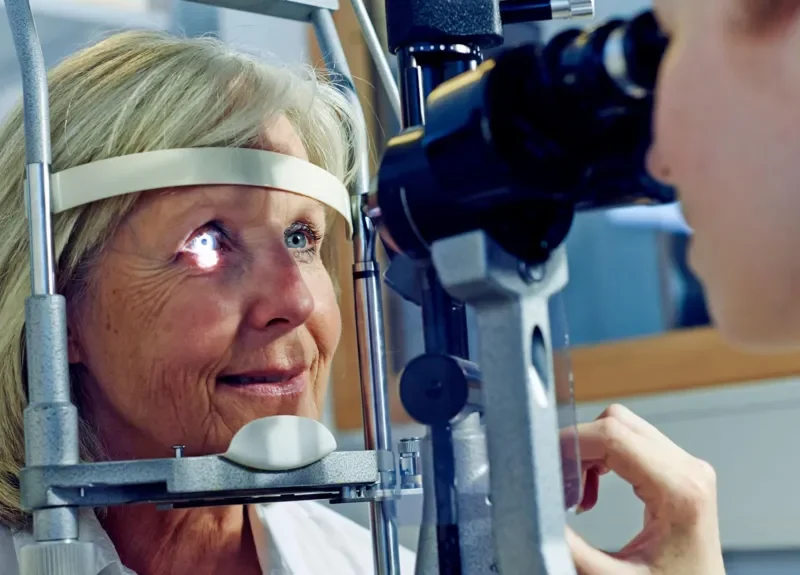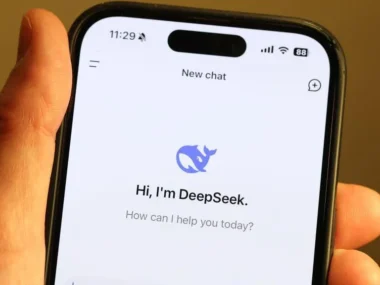Scottish researchers are developing an AI tool for high-street opticians to detect early signs of dementia.
Retinal photographs can reveal brain health, and AI software may analyze these images to identify signs of disease before symptoms appear.
The NeurEYE research team has gathered nearly one million eye scans from opticians across Scotland—the largest dataset of its kind. Using AI, they’ve created an algorithm to assess the health of eye blood vessels, which could indicate neurodegenerative diseases.
This database can be applied to routine eye exam photos, potentially helping clinicians prevent or diagnose diseases far earlier than current methods. Since eye blood vessels are small and fine, they can highlight conditions sooner than other body parts.
The NeurEYE project is led by the University of Edinburgh, with researchers from Glasgow Caledonian University also contributing.

Baljean Dhillon stated that the eye can reveal far more than previously imagined.
Baljean Dhillon, Professor of Clinical Ophthalmology at the University of Edinburgh and co-lead of the NeurEYE project, stated: “The eye reveals far more than we previously realized.
“The retina provides valuable insights and serves as a biological indicator of brain health. Using simple, low-cost equipment available at high-street opticians, we can examine the retina. A basic retinal photograph can now potentially predict brain changes later in life.”
Dementia disrupts brain cell function, impairing memory, thinking, and speech.
Dementia UK reports it affects 1 in 14 people over 65 and 1 in 6 over 80. Conditions like Alzheimer’s can result in memory loss, confusion, and difficulty with communication.
While there is no cure for dementia, early diagnosis enables earlier treatment and gives patients and their families more time to adapt and plan for the future.

David Steele mentioned that predictive software might have benefited his family following his mother’s Alzheimer’s diagnosis.
David Steele, a 65-year-old retired mechanical engineer whose mother has Alzheimer’s, shared with BBC Scotland News that early diagnosis could have spared his family a decade of hardship and emotional strain.
His mother had been visiting opticians frequently due to worsening vision and was initially diagnosed with macular degeneration. However, this diagnosis masked the true issue—cerebral blindness caused by Alzheimer’s.
Steele emphasized that an earlier diagnosis could have significantly changed their experience.
“It would have had a huge impact, especially for my father, who had to navigate the entire process of my mother’s decline,” he said. “If the link had been made 10 years earlier, it would have given my father a better quality of life and allowed the family to plan for my mum’s worsening condition.”
He further added, “You might not want to hear the diagnosis, but it’s crucial to know so you can plan for the future. Early intervention is incredibly important because there comes a time when managing life becomes far more difficult.”

Ian Cameron stated that technology is enabling optometrists to detect conditions more rapidly.
Specialist optometrist Ian Cameron, who operates a practice in Edinburgh, explained: “The eye is unique as it provides a window into the entire body.
“Beyond detecting eye-related conditions like cataracts, glaucoma, macular degeneration, and vision issues, we can also identify problems with the vascular system, heart, high blood pressure, diabetes, and even some neurological conditions through the eye.
“While some conditions tend to manifest later, this technology is helping us detect them earlier and earlier. Regular eye exams contribute to improved health outcomes.”
Cameron emphasized the importance of routine check-ups: “Everyone should have their eyes tested every two years because so much can be detected. Early detection is always better.”
The project team aims to have a prototype ready later this year, with plans to expand the technology to opticians nationwide by 2026.











